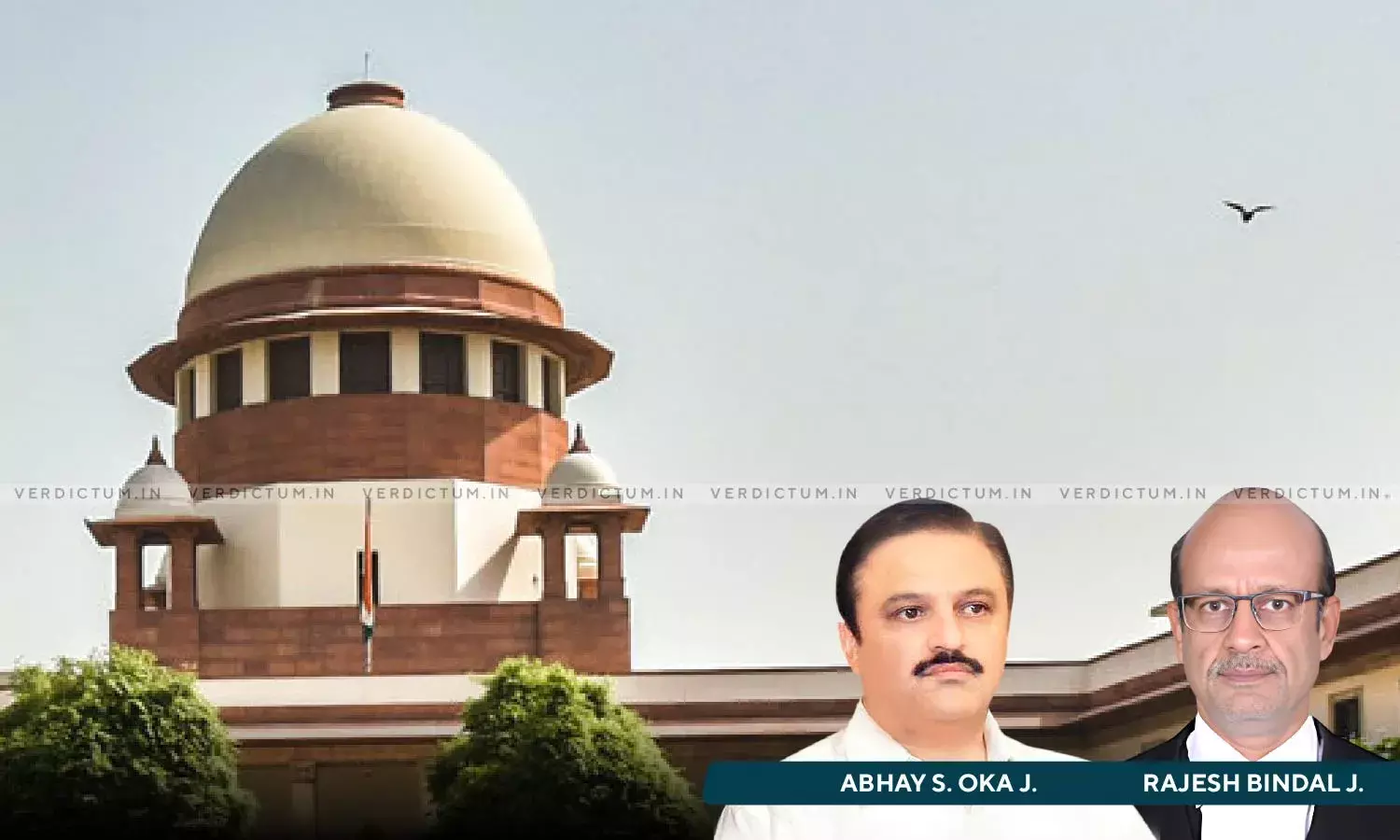Conviction Cannot Be Sustained Based Only On Recovery Of Weapons- SC Observes In Political Rivalry & Murder Case

The Supreme Court in a matter related to political rivalry and a murder case has recently held that the conviction cannot be sustained only on the basis of the recovery of the weapons and hence set aside the conviction of the accused persons.
The two-Judge Bench comprising Justice Abhay S. Oka and Justice Rajesh Bindal observed, “We are, therefore, of the considered opinion that the identity of the named accused as assailants of the deceased has not been established in the Court beyond a reasonable doubt. Then what remains is the evidence of the alleged recovery of the weapons of assault at the instance of the accused. The conviction cannot be sustained only on the basis of the alleged recovery.”
The Bench also noted that in any case, it is very unsafe to convict the accused especially when the only other eye witness believed by the Trial Court could not identify a single accused in the Court.
Advocates Gauri Karuna Das Mohanty, Anu Gupta, Pawan Sharma, and Snehasish Mukherjee appeared for the appellants/accused while Advocate Milind Kumar appeared for the respondent/State.
In this case, an appeal was filed by the accused persons who were convicted for the offences punishable under Sections 148 and Section 302 read with Section 149 of the Indian Penal Code and the High Court had appellant their conviction. There was a political rivalry between the family of the deceased and some of the accused persons who belong to the Ahir community and who had formed a party known as Azad party.
A group of Ahirs attacked the deceased as a result of which FIRs were lodged against the appellants. The Trial Court while believing the testimony of a minor daughter of the deceased, and the mother of the deceased, convicted the appellants.
The Supreme Court after hearing the arguments of both parties asserted, “… PW¬4, who claims to be an eye witness, could not identify a single accused by name in the Court though she claimed that she was in a position to identify the accused by their names as well as their respective father’s name.”
The Court noted that the daughter of the deceased got confused while identifying at least two accused though five accused whom she allegedly named were made to stand separately from the remaining accused.
“In any case, it is very unsafe to convict the accused on the basis of such testimony, especially when the only other eye witness (PW-4) believed by the Trial Court could not identify a single accused in the Court. The learned Trial Judge noted that there was sufficient light in the courtroom and faces of the accused were clearly visible”, said the Court.
Accordingly, the Court allowed the appeal and set aside the conviction of the appellants.
Cause Title- Radhey Shyam & Ors. v. State of Rajasthan


